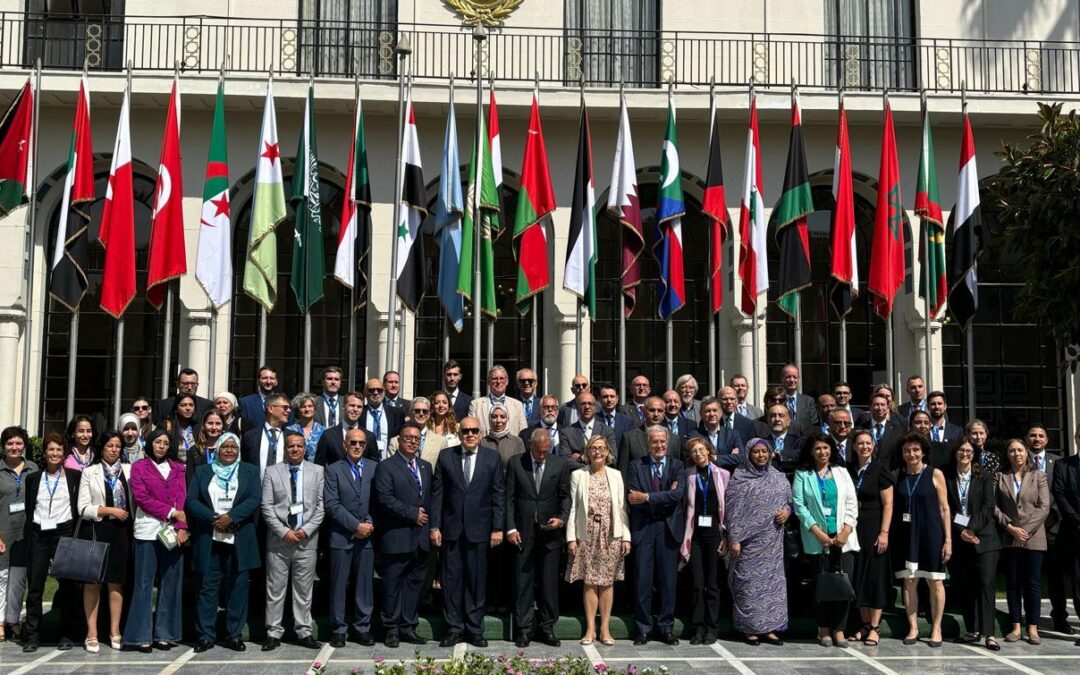The European Commission, the UfM and the LAS teamed up for the very first time to organise a high-level meeting on science diplomacy. The event took place in the headquarters of the Arab League in Cairo on 02/10/2024, bringing together government officials, diplomats and scientists from across the Mediterranean to discuss how science, technology and innovation can be transformative engines for dialogue and sectorial cooperation in the Mediterranean region. The event featured interventions by former Commission President Romano Prodi, DG R&I Deputy Director-General Signe Ratso, and the Secretary-Generals of both, UfM and LAS.
Throughout history, the Mediterranean has served as a crossroads for the exchange of knowledge, ideas and innovation. Science diplomacy has been practised here for millennia, long before the term was conceptualised as a tool in foreign policy. Today, cross-border cooperation in science, technology and innovation plays a key role in providing solutions for the region’s most pressing issues, such as climate change, water scarcity, food security, and migration on the one hand, and in fostering dialogue between the countries in the region on the other, even under difficult conditions.
The meeting discussed the nexus between science diplomacy and cultural diplomacy, highlighting the critical role the universal languages of science and culture play in building bridges between nations, supporting dialogue and mutual understanding, based on values and the respect for cultural diversity.
The meeting highlighted the importance of the Synchrotron-light for Experimental Science and Applications in the Middle East (SESAME) in Jordan as a global lighthouse of science diplomacy. Despite its excellence and unique membership, SESAME faces serious funding problems, demanding a long-term vision for its operations. To this end, the benefits of SESAME for the region need to be promoted, also by diplomats.
The meeting flagged the importance of the Partnership for Research and Innovation in the Mediterranean Area (PRIMA) as a major tool for scientific cooperation in the region. PRIMA projects, e.g. related to the Water-Energy-Food-Environment nexus, show that this is possible, with women playing a key role.
The meeting discussed a blue diplomacy approach for the Mediterranean, through which countries in the region can enhance cooperation, build trust, and address common challenges through scientific collaboration, thereby contributing to the sustainable development and conservation of the Mediterranean’s marine resources.

